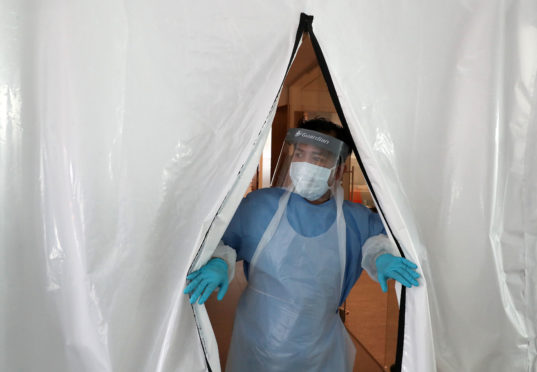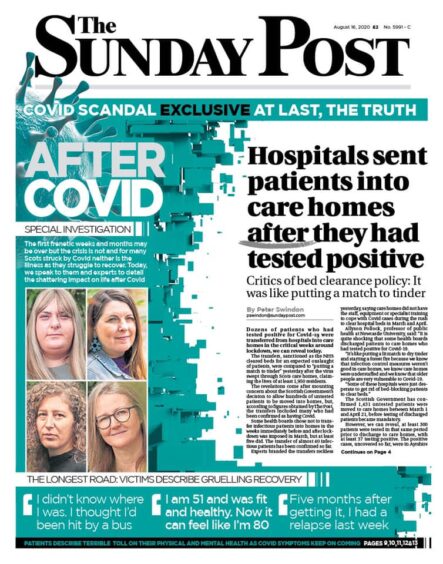
The Scottish Covid inquiry has been branded “woefully slow” after revealing details of its timetable for hearings will not be published until later this month.
The inquiry, announced by Nicola Sturgeon’s administration in December 2021, has been blighted by false starts, delays and resignations.
Last week, after former health secretary Matt Hancock’s phone messages from the pandemic were leaked, prompting concerns the UK inquiry was moving too slowly and would fail to uncover the truth, the chair immediately assured the public.
Heather Hallett said: “Despite the inquiry team working flat out, I know of no other inquiry of its kind in the world, ie one in public, with statutory powers to obtain evidence, with core participants playing important roles and with extraordinarily broad terms of reference.
“So with respect to certain commentators, comparisons to other countries are unhelpful. Furthermore, I wish to emphasise there will be no whitewash.”
Meanwhile, in Scotland, bereaved families who lost loved ones during the pandemic were still waiting to be told when the inquiry would begin but said they didn’t expect hearings to start until next year. The Scottish Covid-19 Inquiry said: “We will publish information about the inquiry’s structure and preliminary timeline on the inquiry website later this month.
“Work is under way to set up premises and plan for hearings and the inquiry has commenced a programme of calls for evidence to recover the necessary material to progress its investigative work.
“The Scottish inquiry is investigating our strategic response to the pandemic during the period from January 1, 2020 to December 31, 2022.”
Scottish Labour said efforts to establish a timeline and framework were taking far too long. The party’s health spokeswoman Jackie Baillie said: “The SNP followed many of the Tories’ most tragic mistakes in lockstep but decision making at that time remains shrouded in secrecy.
“The Covid inquiry is a chance to shed some much-needed light on this tragedy but progress has been woefully slow.”
Further evidence about decision making in Scotland during the pandemic will next be considered by the ongoing UK inquiry at the second stage of a preliminary hearing in London on March 23.
Bereaved families in Scotland say they have been distressed that revelations about the UK Government’s response to Covid were exposed in leaked WhatsApp messages from then health secretary Hancock and published by The Daily Telegraph last week.
Families in Scotland said they wanted to know urgently if any of Hancock’s messages referred to the response to the pandemic here, particularly around the critical situation that developed in care homes.
The Sunday Post reported in August 2020 that a leaked letter from former Scottish health secretary Jeane Freeman revealed the pressure put on hospitals to send elderly patients into care homes in the weeks before and after lockdown.
In the letter to health boards, dated April 10 of that year, Freeman praised them for surpassing “challenging” targets as the NHS prepared for an onslaught of Covid patients. However, hundreds of people were sent into care homes untested. Critics of the policy described it as “putting a match to tinder” in homes where almost 2,000 residents were to die in the pandemic.
Alan Wightman, whose 88-year-old mum Helen passed away in May 2020 after catching the virus in Scoonie House in Leven, is the spokesman for the Scottish Covid Bereaved group. He said: “The Hancock leak came out of the blue and was hard to take.”

Enjoy the convenience of having The Sunday Post delivered as a digital ePaper straight to your smartphone, tablet or computer.
Subscribe for only £5.49 a month and enjoy all the benefits of the printed paper as a digital replica.
Subscribe